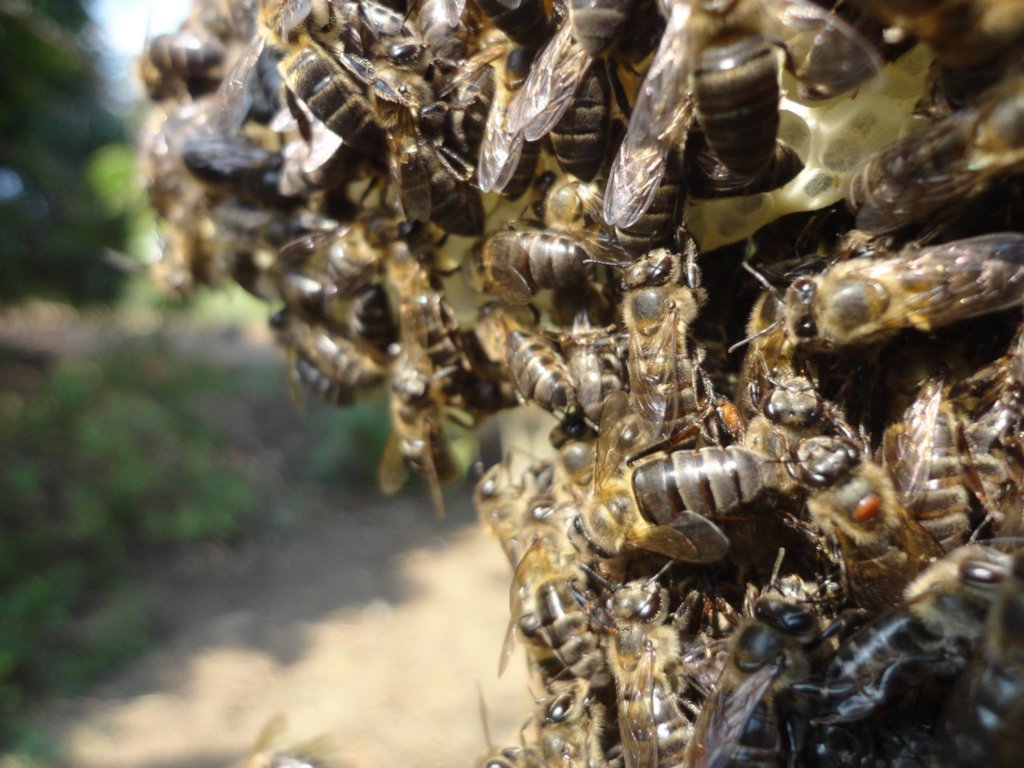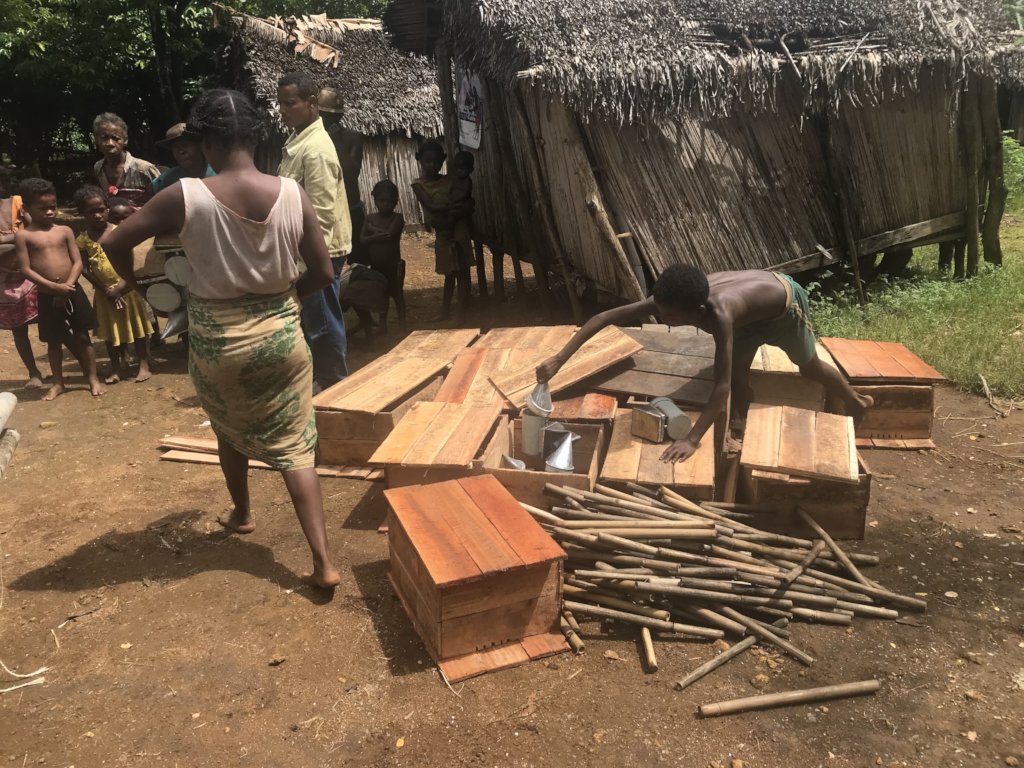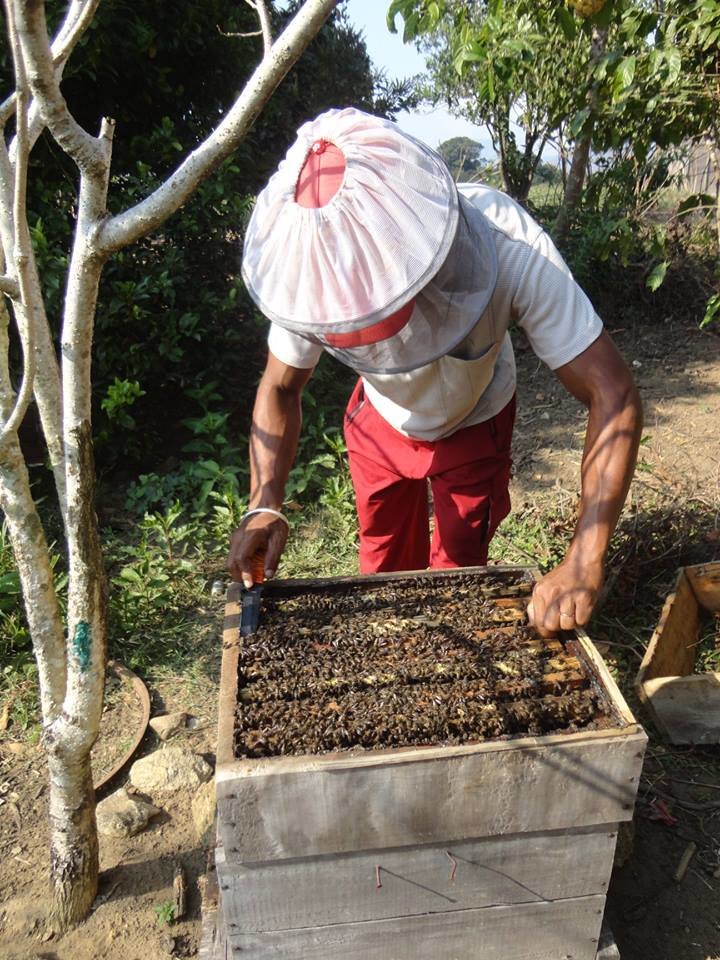By James Harvey | Project Development Officer
Project staff have been working with beekeepers in rural Anosy, southeast Madagascar, to build their enterprises resilience to pests and diseases. This has been particularly important in recent years with the arrival of varroa to the region in 2016. Varroa is a parasitic mite that attaches itself to bees, draining them of energy and reducing the amount of pollen they are able to collect. Present in every country in the world, with the expectation of Australia, varroa is widely regarded as one of the main causes for bee colonies to collapse.
The beekeepers of Project Renitantely know about varroa all too well and between June and November 2017 saw 84% of their colonies collapsing, with a strong link found to varroa infestations within their beehives. The effects of varroa are incredibly severe and seriously impact beekeepers ability to generate income from the sale of honey and wax.
SEED has been addressing varroa since its first arrival in Anosy, with a previous project building beekeepers knowledge of prevention and treatments while creating healthy bee colonies that are equipped to cope with varroa. Through a rigorous training programme, Project Renitantely is making sure that the knowledge of varroa treatment stays within communities long after the end of SEED’s involvement.
However, to really protect beekeepers’ livelihoods from further losses to varroa and other pests, the team realised that that beekeepers needed support to repopulate their empty hives…
Juve, our Community Liason Officer, and Jevago, our Local Beekeeping Technician, quickly came up with the idea of setting up community Bee Banks. The plan is that these Bee Banks can provide beekeepers with access to healthy colonies with which beekeepers can begin to repopulate their lost hives. Bee Banks have now been constructed in three central communities, with Juve and Jevago working together with beekeepers to populate and maintain the hives.
Having a bank of healthy bee colonies in remote communities is massively strengthening beekeepers’ businesses in the face of varroa. In the remote communities that Project Renitantely works, beekeepers would otherwise have to rely on collecting colonies from the forest to repopulate their hives. Now, thanks to the ingenuity of Juve and Jevago, they have access to healthy bees!
Project reports on GlobalGiving are posted directly to globalgiving.org by Project Leaders as they are completed, generally every 3-4 months. To protect the integrity of these documents, GlobalGiving does not alter them; therefore you may find some language or formatting issues.
If you donate to this project or have donated to this project, you can recieve an email when this project posts a report. You can also subscribe for reports without donating.
Support this important cause by creating a personalized fundraising page.
Start a Fundraiser

